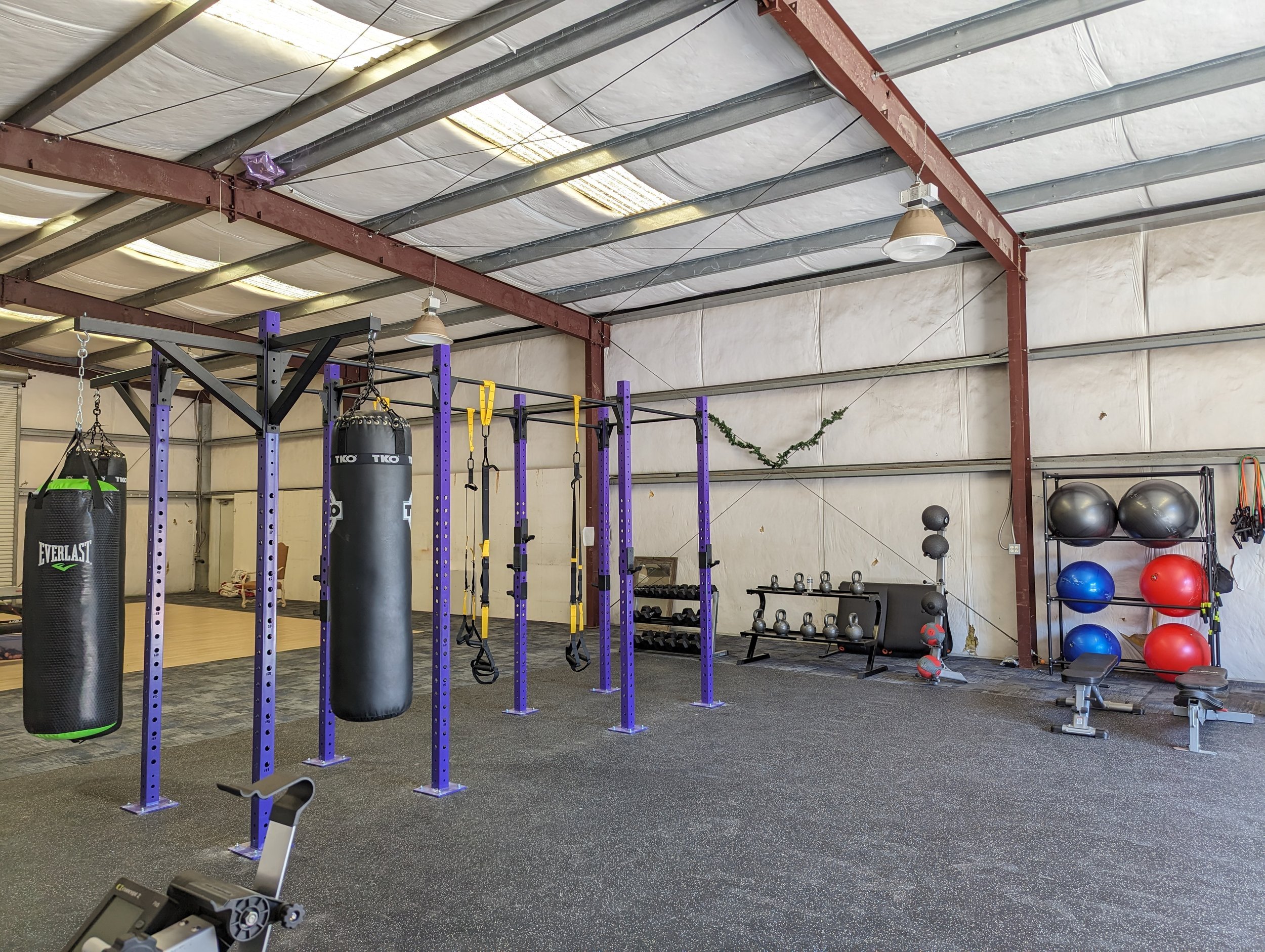Understanding Drug and Alcohol Relapse: How to Prevent It
Drug and alcohol addiction can be incredibly challenging to overcome. People seeking recovery often encounter various obstacles on their path to sobriety, and one of the most significant challenges they face is the risk of relapse. In this comprehensive guide, we will explore what a drug or alcohol relapse is and provide valuable insights on how to prevent it. We will also discuss the crucial role of drug and alcohol rehab, addiction treatment, drug addiction therapy, and recovery centers in this journey.
What is a Drug or Alcohol Relapse?
Definition of Relapse
A drug or alcohol relapse is a setback in a person's journey towards recovery from addiction. It involves the return to substance abuse after a period of abstinence or sobriety. Relapse can be a significant setback, leading to both physical and psychological consequences. Our Drug and Alcohol Rehab in Riverside County can help you bounce back from a relapse quickly and effectively to ensure you get back into recovery.
According to the National Institute on Drug Abuse (NIDA), the relapse rates for addiction are estimated to be around 40-60%. This means that 40-60% of individuals who undergo addiction treatment experience a relapse at some point. [Source: National Institute on Drug Abuse (NIDA), "Treatment and Recovery," NIDA InfoFacts, 2018.]
The Nature of Addiction
Understanding the nature of addiction is essential in comprehending relapse. Addiction is a chronic, relapsing condition that often involves changes in the brain's structure and function. This makes it difficult for individuals to maintain long-term abstinence.
Triggers of Relapse
Relapse can be triggered by a variety of factors, including:
Stress
Peer pressure
Emotional trauma
Environmental cues
Co-morbid mental health disorders
Sleep issues
Stages of Relapse
Relapse typically occurs in three stages:
Emotional relapse
Mental relapse
Physical relapse
To bounce back from a relapse, contact pH Wellness now at (844) 549-2488.
The Role of Drug and Alcohol Rehab in Riverside
What is Drug Rehab?
Drug rehab, short for drug rehabilitation, is a structured program designed to help individuals overcome substance addiction. It typically involves a combination of therapies, counseling, medical support, and education to address the physical and psychological aspects of addiction. At pH Wellness, our client’s program’s include much more than just that.
What is Alcohol Rehab?
Alcohol rehab, also known as alcohol rehabilitation, serves the same purpose as drug rehab but is specifically tailored to individuals struggling with alcohol addiction. These programs are crucial in addressing alcohol abuse and dependence.
Drug Rehab Clinic and Alcohol Rehab Center - Riverside
Riverside drug rehab clinics and alcohol rehab centers are facilities where individuals receive treatment for addiction. These centers offer a safe and controlled environment where patients can focus on their recovery, away from the triggers of everyday life.
Importance of Professional Guidance
Seeking help from a drug rehab clinic or an alcohol rehab center provides individuals with access to professional guidance and support. Trained staff can create personalized treatment plans that address the unique needs of each patient, increasing the chances of long-term recovery.
Dual-Diagnosis Rehab Riverside
Dual diagnosis, also known as co-occurring disorders or comorbidity, refers to a situation where an individual is simultaneously experiencing both a substance use disorder (SUD) and a mental health disorder. In other words, it involves the coexistence of addiction or substance abuse and a psychiatric or psychological condition.
Here are some key points to understand about dual diagnosis:
Prevalence: Dual diagnosis is relatively common. Many individuals who struggle with substance abuse also have underlying mental health issues, such as depression, anxiety, bipolar disorder, or schizophrenia. Conversely, individuals with mental health disorders may turn to substances as a way to self-medicate their symptoms.
Complex Interaction: Dual diagnosis represents a complex interaction between substance abuse and mental health issues. Substance abuse can exacerbate or trigger mental health problems, and conversely, mental health disorders can lead to substance abuse as a coping mechanism.
Challenges in Diagnosis and Treatment: Identifying and treating individuals with dual diagnosis can be challenging. The symptoms of one condition may mask or mimic the symptoms of the other, making it difficult to diagnose accurately. Effective treatment often involves addressing both the substance use disorder and the mental health disorder simultaneously.
Integrated Treatment: Best practices for dual diagnosis treatment typically involve integrated care, where healthcare professionals, including addiction specialists and mental health professionals, collaborate to address both conditions simultaneously. This approach ensures that the treatment plan is holistic and tailored to the individual's unique needs.
Relapse Risk: Individuals with dual diagnosis may have a higher risk of relapse if both conditions are not adequately treated. Comprehensive, ongoing care is essential to address both the addiction and the mental health condition and to reduce the risk of relapse.
Examples: Common examples of dual diagnosis scenarios include alcohol use disorder and depression, opioid addiction and anxiety disorder, and cocaine addiction and bipolar disorder, among others.
If you have questions please contact pH Wellness now at (844) 549-2488.
Substance Addiction Treatment in Riverside
The Goal of Addiction Treatment for Substance Use Disorder
The primary goal of addiction treatment in Riverside is to help individuals stop using drugs or alcohol and maintain sobriety. Treatment methods may vary, but they generally focus on:
-
Detoxification, often referred to as "detox," is the process of eliminating alcohol or drugs from the body. It is the first step in the journey to recovery from substance abuse. The primary goal of detoxification is to safely manage withdrawal symptoms and physical dependency on a substance while preparing the individual for further addiction treatment and rehabilitation.
Detox is the first step toward recovery, but it is not a standalone treatment. It should be followed by comprehensive addiction treatment, which may include behavioral therapy, counseling, support groups, and ongoing care to address the psychological, social, and environmental aspects of addiction. Successful detox is crucial for a safe and effective transition to the next phase of addiction treatment and recovery.
-
Behavioral therapy for alcohol and drug addiction is a type of counseling that focuses on identifying and modifying unhealthy behaviors and thought patterns associated with substance abuse. It helps individuals develop healthier coping strategies and skills to achieve and maintain sobriety. Such skills could include Relapse Prevention Skills, Coping Mechanisms, Communication Skills, and Maintaining Healthy Boundaries.
-
Medication-Assisted Therapy (MAT) is a comprehensive treatment approach for alcohol and drug addiction that combines behavioral therapies and counseling with medications specifically designed to address cravings and withdrawal symptoms, ultimately helping individuals achieve and sustain recovery from substance use disorders.
Common medications used in MAT for alcohol and drug addiction include:
For opioid addiction: Suboxone, Buprenorphine, and Naltrexone (Vivitrol).
For Alcohol Addiction: Disulfiram, acamprosate, and naltrexone.
For tobacco addiction: Nicotine replacement therapies (e.g., nicotine gum, patches) and prescription medications like varenicline and bupropion.
MAT helps individuals manage cravings, withdrawal symptoms, and the physiological aspects of addiction, increasing the chances of long-term recovery.
-
Support groups for substance use disorder are structured meetings where individuals struggling with addiction come together to share experiences, provide mutual encouragement, and gain coping strategies for overcoming their substance use challenges. These groups offer a safe and non-judgmental space for participants to discuss their struggles and successes.
Detoxification
Detoxification, or detox, is the initial step in addiction treatment. It involves the safe removal of drugs or alcohol from the body. This process can be challenging due to withdrawal symptoms, making it essential to seek professional care during detox.
Behavioral Therapy
Behavioral therapy is a cornerstone of addiction treatment. Various therapeutic approaches, such as cognitive-behavioral therapy (CBT), motivational enhancement therapy (MET), and contingency management, help individuals understand and change their behaviors related to substance abuse.
Medication-Assisted Treatment (MAT)
Medication-assisted treatment combines medications with counseling and therapy to address substance use disorders. MAT can be particularly effective for opioid and alcohol addiction by reducing cravings and withdrawal symptoms.
Call now for a free and confidential consultation at (844) 549-2488.
Support Groups for Substance Use Disorder:
Support groups for substance use disorder are structured meetings where individuals struggling with addiction come together to share experiences, provide mutual encouragement, and gain coping strategies for overcoming their substance use challenges. These groups offer a safe and non-judgmental space for participants to discuss their struggles and successes.
Examples of Support Groups for Substance Use Disorder:
-
A widely recognized and longstanding support group for individuals dealing with alcohol addiction. AA follows a 12-step program to promote sobriety.
-
Modeled after AA, NA is a support group specifically for those with drug addiction. It also utilizes a 12-step approach.
-
A science-based support group that focuses on self-empowerment and cognitive-behavioral techniques to overcome addiction.
-
A Christian-based support group that addresses various addictive behaviors and offers a faith-centered approach to recovery.
-
Designed for individuals with co-occurring substance use and mental health disorders, DRA provides a space for dual recovery.
-
This support group is geared toward women with substance use disorders and emphasizes personal growth and emotional well-being.
-
A non-religious alternative to traditional 12-step programs, SOS focuses on self-empowerment and peer support.
These support groups play a crucial role in the recovery process, providing a sense of community, understanding, and shared goals for individuals seeking to overcome their substance use disorders.
Drug Addiction Therapy
Individual Therapy
Individual therapy sessions provide a private, one-on-one setting for patients to explore the root causes of their addiction, learn coping strategies, and set goals for recovery.
Group Therapy
Group therapy offers a supportive environment where individuals can share their experiences, challenges, and successes with others who are on the same journey to recovery. It fosters a sense of community and reduces isolation.
Family Therapy
Addiction affects not only the individual but also their loved ones. Family therapy addresses the family dynamics surrounding addiction, promotes healthier communication, and helps the family unit heal together.
How to Avoid Drug and Alcohol Relapse
Develop a Relapse Prevention Plan
One of the key steps to avoiding relapse is to create a comprehensive relapse prevention plan. This plan should include strategies to identify triggers, cope with cravings, and seek support in times of need.
Identify and Avoid Triggers
Understanding your personal triggers is crucial. These triggers can be people, places, situations, or emotional states that make you more vulnerable to relapse. Identifying and avoiding them is a vital part of relapse prevention.
Build a Support System
A strong support system is essential for maintaining sobriety. Surround yourself with people who understand your journey and can offer emotional support when you need it.
Practice Self-Care
Taking care of your physical and mental health is crucial in preventing relapse. Engage in regular exercise, maintain a balanced diet, and practice relaxation techniques to reduce stress.
Stay Engaged in Aftercare
After completing a drug or alcohol rehab program, it's important to stay engaged in aftercare. This may involve continued therapy, support groups, and periodic check-ins with professionals to ensure you remain on the path to recovery.
Call now to learn more at (844) 549-2488.
Does Every Rehab Have A Gym?
The quick answer is NO. However, pH Wellness and Recovery Center in Riverside is home to a state-of-the-art Fitness Center, which our clients have access to DAILY. Fitness and gym access can be incredibly helpful in addiction recovery for several reasons. Engaging in regular physical activity can play a significant role in preventing relapse and promoting overall well-being. Here's how fitness and gym access can be beneficial in the recovery process:
-
Exercise is a proven stress reducer. Stress is a common trigger for relapse, and engaging in physical activity can help alleviate stress and anxiety. It promotes the release of endorphins, which are natural mood lifters.
-
Exercise can have a positive impact on mood and emotional well-being. It can help combat depression and improve self-esteem, which are essential factors in recovery.
-
Substance abuse often takes a toll on physical health. Engaging in regular exercise can help individuals regain physical fitness and overall health, which can be motivating and reinforce the benefits of sobriety.
-
Recovery often requires the establishment of a new, healthy routine. Going to the gym or participating in fitness activities can provide structure to the day, reducing the time and opportunity for negative behaviors.
-
Exercise provides a healthy and positive distraction from cravings and triggers. It gives individuals an alternative focus for their thoughts and energy.
-
Many gyms and fitness classes provide opportunities for social interaction. Building a network of supportive friends who share an interest in fitness can offer a sense of community and belonging.
-
Setting and achieving fitness goals can be empowering. It can instill a sense of accomplishment, which is essential in recovery. Individuals can learn to apply the same goal-setting techniques to their sobriety.
It's important to remember that not everyone may be equally interested in or physically capable of traditional gym workouts. The key is finding physical activities that are enjoyable and sustainable, whether it's dancing, hiking, yoga, or team sports. The goal is to integrate regular exercise into one's daily routine in a way that supports recovery.
However, it's also essential to approach fitness and gym activities with moderation. Some individuals might be prone to developing an addiction-like relationship with exercise, known as exercise addiction. It's crucial to find a balance that works for you and to avoid using exercise as a substitute for other aspects of recovery, such as therapy and support groups.
The Ongoing Journey to Recovery
Recovery from drug and alcohol addiction is an ongoing process. Relapse may happen, but it doesn't mean you've failed. It's important to view relapse as an opportunity to learn and make necessary adjustments to your relapse prevention plan. Stay committed to your recovery and seek help when needed.
Conclusion
Drug and alcohol relapse is a common challenge for those on the path to recovery, but it is not insurmountable. With the right support and strategies in place, individuals can avoid relapse and maintain a fulfilling, sober life. Drug and alcohol rehab, addiction treatment, drug addiction therapy, and recovery centers all play crucial roles in this journey. Remember that seeking help and staying committed to your recovery are essential steps in achieving and maintaining a substance-free life. At pH Wellness, we provide all levels of evidence-based care, and more.
Call now for a free and confidential consultation at (844) 549-2488.








